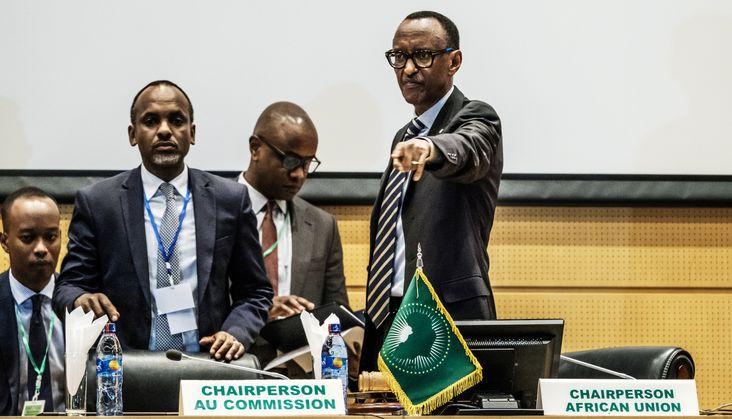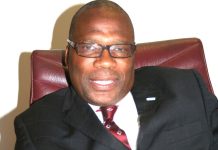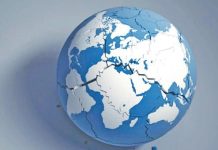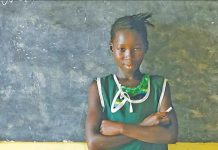Africa-Press – Lesotho. Kigali’s diplomats are abuzz in following regional and continental intrigues, with President Paul Kagame having stepped down as chair of the African Union (AU) in February to take up the rotating leadership of the East African Community (EAC) in the same month.
Kagame had launched his AU leadership bid on the basis of his reformist credentials and wrapped up with some victories but without transforming one of the institution’s key problems: money.
Kagame has been in charge of the AU’s reform efforts since 2016 and has been championing the changes needed to achieve the body’s ambitious Agenda 2063, which targets strengthened integration and economic growth.
“We have made significant progress in the reform process,” foreign affairs minister Richard Sezibera tells sister magazine Jeune Afrique.
“The AU’s priorities have been streamlined, the number of summits reduced. African countries have managed to speak with one voice. ”
Liesl Louw-Vaudran, a consultant with South Africa’s Institute for Security Studies, adds: “He held a radically different presidency from his predecessors.
He was very ambitious, but also very impatient and tried to project the image of a progressive leader. ” 24 of the AU’s 55 member states are introducing a 0.2% tax on imports to finance the continental body under a proposal championed by Kagame
In March 2018, the AU convened an extraordinary summit in Kigali to sign the African Continental Free Trade Area agreement, which has been under discussion since 2012.
Then, before the Nouakchott summit in early July, he had, together with AU Commission chair Moussa Faki Mahamat, issued an uncompromising report about the progress of the reforms.
A final extraordinary summit in November 2018 in Addis Ababa focused on reform was not enough to achieve one of Kagame’s long-term goals: for African countries to become the main funders of the continental body.
The issue does not have wide support and the subject did not even make it on to the summit agenda. Lingering suspicion It is closer to home that cooperation seems even less likely.
The AU was unable to mediate in the fall-out of the disputed December 2018 polls in neighbouring Democratic Republic of Congo. Faced with the new regime’s intransigence and lines of division amongst heads of state, the AU backed down from its plan to send a mission to Kinshasa in late January.
Nearby, Burundi’s President Pierre Nkurunziza says Rwanda is the country’s enemy. The EAC has failed to get Nkurunziza, who ran for a controversial third term in 2015, to engage in dialogue with oppositionists and rebel groups.
Kigali and Kampala are also experiencing heightened tensions, with foreign minister Sezibera telling Jeune Afrique: “There have been several worrying developments that we are trying to raise with the Ugandan authorities, including cases of arbitrary arrests and torture of Rwandans in Uganda.
” With so much suspicion in the region, getting the six countries of the EAC to work together is likely to be a tougher task than getting the AU — known for its inertia — moving forward.
For More News And Analysis About Lesotho Follow Africa-Press






